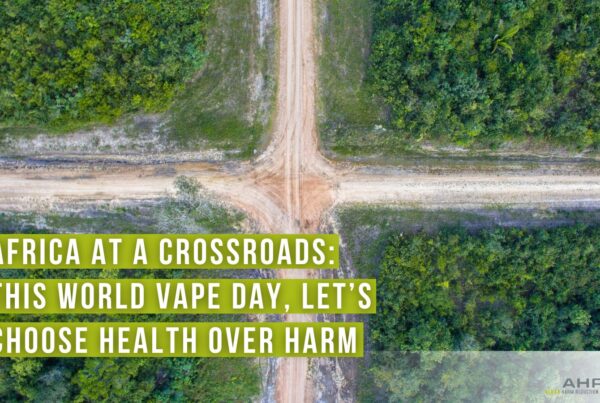Author: Joseph Magero, of Campaign for Safer Alternatives
The tenth session of the Conference of the Parties (COP10) to the W.H.O. Framework Convention on Tobacco Control (F.C.T.C.) takes place this year. This presents another opportunity to explore strategies that can accelerate a reduction in smoking rates in Africa.
Nearly 18 years since the W.H.O F.C.T.C. treaty came into force, it hasn’t proven to be a stellar success on its own terms, especially in low and middle-income countries. The current smoking prevalence in Africa calls for a major paradigm shift in policy.
By leveraging the best available evidence on current interventions, we can improve the effectiveness, efficiency, and equity of tobacco control policies, enhance the effective use of scarce public resources, and increase the transparency and accountability of policies and interventions.
The role of W.H.O.’s F.C.T.C. has been key to shaping thex policy debate and fostering momentum toward policy endorsement that is hostile towards safer nicotine products. The F.C.T.C claims to be an evidence-based treaty, however, their skepticism towards novel nicotine products is not hinged on scientific evidence.
But while the World Health Organization has been strongly supportive of harm reduction in other contexts—for example, advocating methadone substitution and the use of condoms to reduce HIV transmission—it has been far less supportive when it comes to tobacco and nicotine products , forgetting the fact it has listed nicotine as an essential medicine .
Since cigarette smoking rates have been declining in richer countries, it would seem logical to consider what is causing this decline. In countries such as the United Kingdom, the demand for cigarettes has fallen as a result of smokers switching to less harmful products, such as electronic cigarettes. Sweden will be the world’s first country to be declared smoke-free , thanks to oral nicotine products such as snus and nicotine pouches.
The World Health Organization needs to play a lead role in encouraging F.C.T.C signatories from low and middle-income countries to make a more balanced view of the potential for safer nicotine products . While it laments slow progress in reducing the prevalence of smoking in Africa, W.H.O insists that its tobacco control strategy is working, as more countries in Africa adopt tobacco control laws. But enforcing the law in these countries is a different matter, as they lack the necessary administrative and financial enforcement resources.
The degree to which countries in Africa can enforce and implement policies rather than simply signing up to good intentions is notably split. A report from 2019 admitted that ‘cessation policies are still among the least implemented of all W.H.O. F.C.T.C. demand reduction measures, with only 23 out of 195 countries worldwide providing best practice cessation services, the majority of which are high-income countries.’ Where does this leave the millions of African smokers who have no cessation services at their disposal?
A new and inclusive approach is required, engaging with all stakeholders with no exceptions, to evaluate the merits of novel nicotine products, based on scientific principles rather than ideology. Policies must continue to dissuade minors, ex-smokers, and non-smokers from using tobacco and nicotine-containing products while making safer alternatives to cigarettes available to adults who continue to smoke tobacco. Countries in Sub-Saharan Africa need to review their legislation in order to secure tobacco harm reduction interventions under law. It is imperative for these countries to rapidly adopt a systematic public health approach that is evidence-informed.

THR Topics
Popular Posts
Quick Links
Women in THR
Related Posts
 Letter to the World Health Organization (WHO)
Letter to the World Health Organization (WHO)
Letter to the World Health Organization (WHO)
 Public Health implications of vaping in Germany
Public Health implications of vaping in Germany
Public Health implications of vaping in Germany
 Public Health implications of vaping in the United States of America
Public Health implications of vaping in the United States of America








